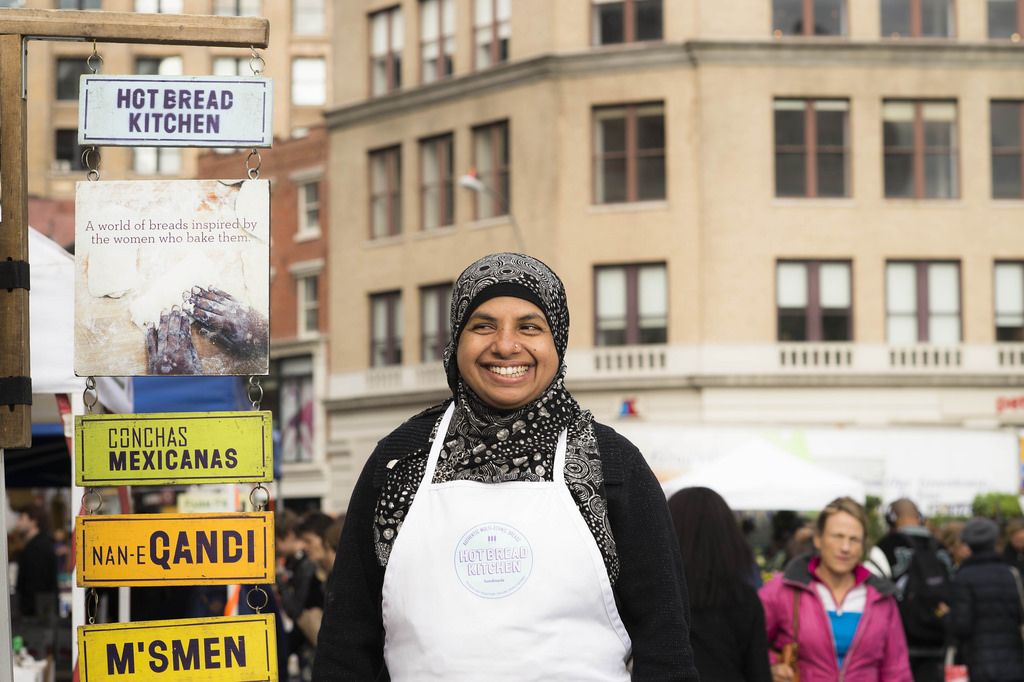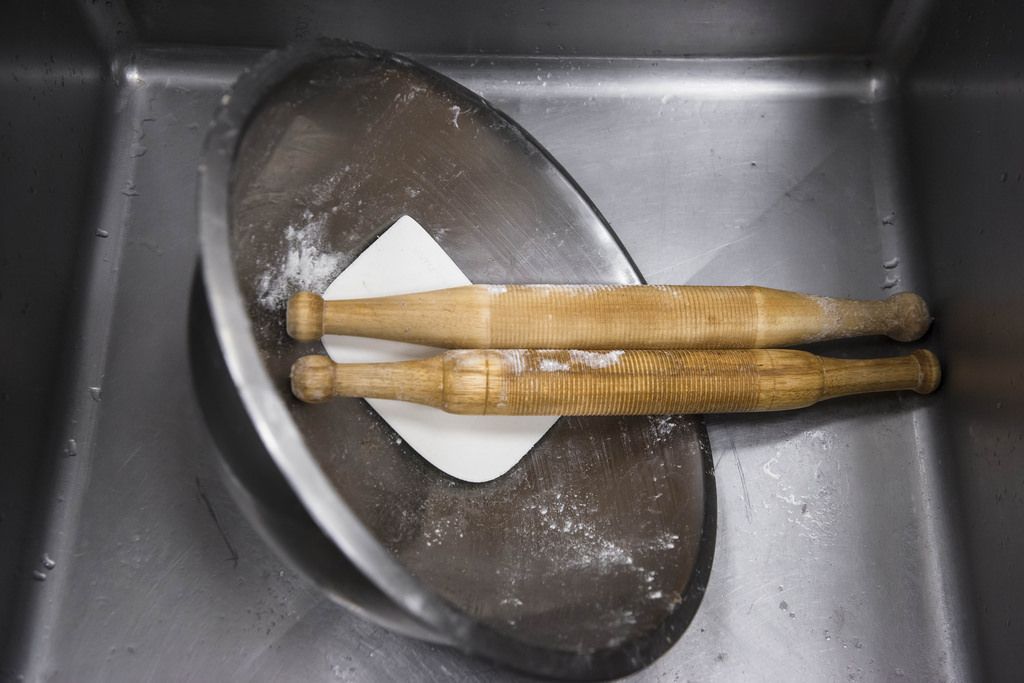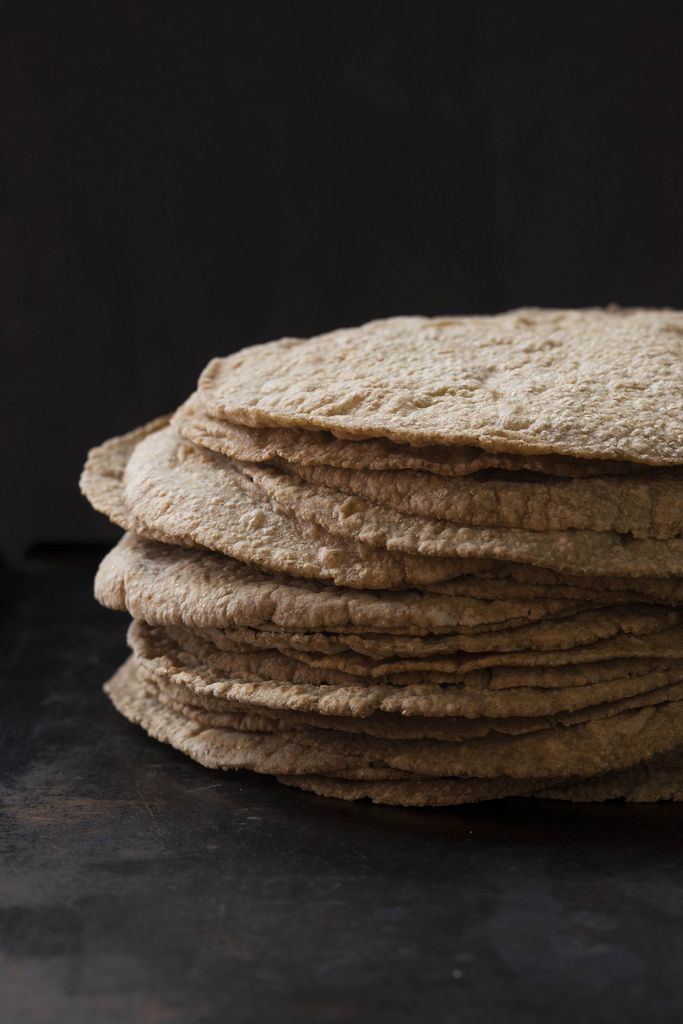
Lutfunnessa is the product coordinator for lavash and granola at Hot Bread Kitchen
As she was growing up in Bangladesh, Lutfunnessa was taught by her mother how to make chapatis, an unleavened pancakelike bread, from scratch. Her mom made them daily for just about every meal, drizzling them with honey in the morning and serving them alongside spiced curries in the evening. The chapati recipe came with Lutfunnessa to America and, lucky for us, to Hot Bread Kitchen.
A former political science teacher in Bangladesh, Lutfunnessa joined her husband in New York in 1996. They had a son and a daughter whom Lutfunnessa cared for at home. When the kids were both in school, she looked for work outside the home. Lutfunnessa saw a flyer for Hot Bread Kitchen when we were still in an incubator kitchen in Queens in 2010. The training program appealed to her because it was paid, it was with a team of women, and it didn’t require her to interact with the public too much (which intimidated her because of her limited English and experience). For us, she was a good fit because like the rest of us, she loves and thinks about food all the time, she works with resolve and determination, and her chapatis are exceptional! Lutfunnessa excelled in the training program, taking intensive English, math, and baking theory. When we moved to Harlem and she graduated, we promptly hired her back to manage the production of our lavash and granola.
More: Your granola doesn't need a recipe.
The first bread that Lutfunnessa mixes in the morning is chapati. Next she prepares the dough for lavash, stretching piece after piece on the backs of baking sheets. She then mixes huge tubs of oats and nuts and more for granola. Near the end of her shift she’ll jump out of production for managers' lunch—a chance for first-time managers to share strategies and woes of managing an ever-changing team of trainees.

A traditional chapati rolling pin
On Sundays, Lutfunnessa trades her baking skills for her sales skills as the manager of our stand at the Greenmarket in Jackson Heights, Queens. Lutfunnessa speaks Bengali, English, and after five years at Hot Bread Kitchen, proficient Spanish, which all serve her well in the ethnically diverse neighborhood. She has a loyal following among farmers market shoppers and does her shopping with the other vendors. When Lutfunnessa trains new staff, she tells them, “To be a good sales person, you have to be good at talking to your customers.” While this seems self-evident, it indicates a notable transformation for someone who originally sought a behind-the-scenes job. Lutfunnessa’s newfound outgoing nature inspires new trainees—and sells a lot of bread.
Lutfunnessa’s experience at Hot Bread has brought her full circle; she is once again a teacher. Part of her job as a manager is helping new trainees learn how to make our breads. She still loves working with so many women from different backgrounds. In fact, when someone asks Lutfunnessa what her next chapter in life might be, she laughs, “This is my last job. I don’t plan on ever leaving!” Inshallah.

Whole Wheat Chapatis
Makes 12 (6-inch; 15 centimeter) rounds; serves 12
1 3/4 cups plus 1 tablespoon (415 grams) water
1 teaspoon kosher salt
2 1/4 cups (290 grams) whole-wheat flour, plus more for shaping
See the full recipe (and save and print it) here.
Reprinted with permission from Hot Bread Kitchen by Jessamyn Waldman Rodriguez and Julia Turshen, copyright 2015. Published by Clarkson Potter. Photos by Jennifer May.
See what other Food52 readers are saying.